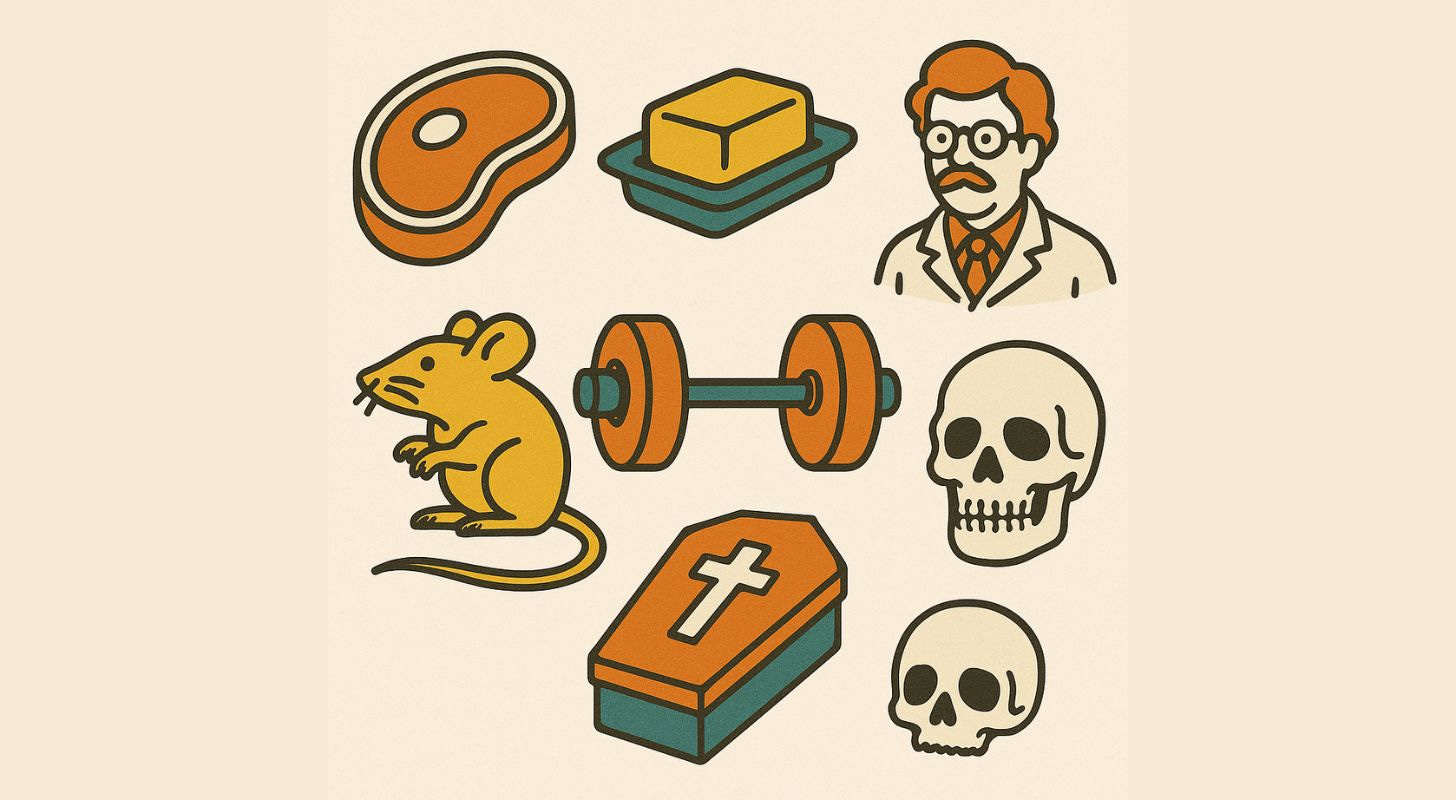Deaths, Convicts, and the Rise of Keto
Why fad-diets surge and what that can tell us about society and our health.
Post summary
Fad diets constantly rise and fall in popularity. But why?
We’ll look at the 2,600-year history of the ketogenic diet to answer that question.
The rise of the ketogenic diet highlights a key turning point in how we view health—and it may not be making us healthier.
If we can understand why diets rise and fall, we can cut through the noise, make better decisions, and develop healthy habits that last.
Quick housekeeping
Full access to this post is for Members of Two Percent.
Become a Member to get full access to this post and all Two Percent posts and audio versions—you may be able to expense it.
Thanks to our partners:
GOREWEAR designs endurance gear for Two Percenters. I live in their Concurve 2-in-1 Shorts during summer outdoor workouts. I also used their Drive Vest on a windy hike over the weekend. Use code EASTER30 for 30% off your next order.
Pro Compression created a Two Percent sock for my 850-mile hike. I wear it nearly every day because it’s perfect. Get 40% off with code EASTER.
Audio version
It’s located at the bottom of this post.
The post
On Monday, we covered the rise of ketone supplements. The big takeaway: They may help people with medical conditions or those participating in extreme events, like a 100-mile ultramarathon. Otherwise, they probably aren’t worth it.
That post reminded me of a story I wrote years back about the rise of the ketogenic diet.
What started as a diet story morphed into something bigger. It helped me understand dieting in general—why we diet, why diets rise and fall, and what that can tell us about food and ourselves.
Reporting the piece absolutely helped me “see through” the dieting industry and make better decisions that improved my physical and mental health in the long run.
Let’s roll …
A contrarian diet
In 2018, Greyson Lopez’s Navy buddy was about to be kicked out for being too chubby. Then “the guy lost 20 pounds in like 20 days,” said Lopez, 23. “So I asked him, ‘How'd you do it?’”
The guy explained that he’d gone to the message boards of Reddit, where he stumbled onto a thread on the “ketogenic” diet. Reddit users posted about losing 52 pounds in as many days, an absence of hunger, and even clearer thinking.
The diet was also contrarian—a giant f*ck you to the food pyramid and the cardiologists who helped create it.
It asked you to limit protein and eat almost no carbs, meaning you should think twice about fruits and vegetables.
What’s left? Fat. Lots of it: marbled steak, bacon, eggs. Top it all with butter, olive oil, and more butter. A traditional keto dieter gets 90 percent of their calories from fat, 6 from protein, and 4 from carbs.
But Lopez’s friend had wild claims, and Lopez even listened to scientists talking about the diet on podcasts.
So he went all in. “I threw out all my carb-heavy foods like ramen and Hot Pockets,” he says. “Then I grabbed as much bacon, grass-fed butter, and steak as I could find.”
But here's what Lopez didn’t know: Keto has a wild history involving scientific fraud, a two-time felon, and multiple deaths. And it could only rise due to certain cultural conditions in America in the 2010s.
Keto: A brief history from 500 B.C. to 2012
A medical intervention: 500 B.C. to 1971
The ketogenic diet wasn’t created for weight loss. Health experts as early as 500 B.C observed that epileptics who hadn’t eaten for a couple of days stopped having seizures.
But it wasn’t until the 1920s that doctors at the Mayo Clinic figured out why: After 48 hours, your body burns through sugars it stores for fuel and switches to burning fat and producing ketones for fuel.
This state is called ketosis, and it seems to drastically reduce seizures.
Of course, an epileptic can’t fast forever. So Russel Wilder, M.D., started tinkering with a fat-centric diet that mimicked fasting, depleting the body of sugar and causing it to lapse into ketosis.
He tested his “ketogenic” diet1 on epileptics and, ever since, the diet’s been our most effective treatment for seizures. Still today, it beats medication.
Enter weight loss (and the deaths): 1972 to 1980
Keep reading with a 7-day free trial
Subscribe to Two Percent with Michael Easter to keep reading this post and get 7 days of free access to the full post archives.


